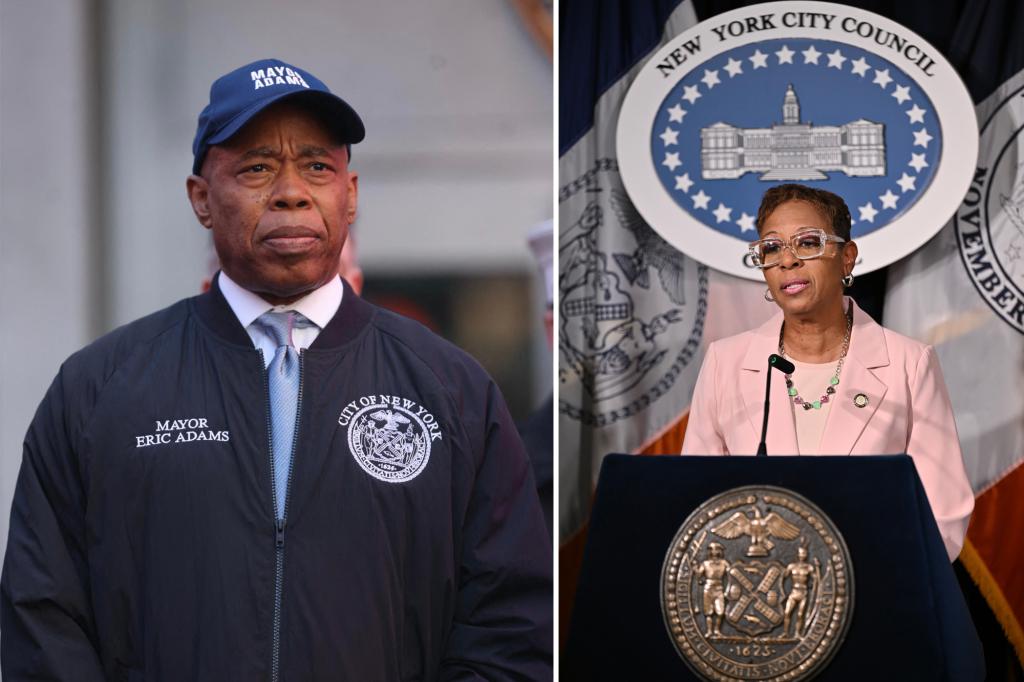The New York City Council is on the verge of enacting legislation that expands post-employment lobbying restrictions for mayoral staff, aiming to curb potential influence peddling by former high-ranking officials. This legislative push comes amidst a backdrop of federal corruption and bribery charges against Mayor Eric Adams and the resignation or criminal charges faced by several of his former top aides. While the mayor supports the concept of strengthening lobbying regulations, his administration criticizes the Council for exempting its own members and staff from the proposed restrictions.
The bill, spearheaded by Councilman Lincoln Restler, broadens the scope of the two-year lobbying ban that applies to former City Hall officials after they leave government service. Currently, the ban covers a limited number of individuals, but the proposed legislation seeks to extend it to a wider range of influential positions within the mayor’s office. These include the chief of staff, communications director, press secretary, senior advisors, director of intergovernmental affairs, chief counsel, chiefs of staff to deputy mayors, and deputy chiefs of staff to the mayor’s chief of staff. This expansion aims to prevent former officials from leveraging their insider knowledge and connections for personal gain immediately after leaving public service.
The Adams administration, while endorsing the general principle behind the bill, criticizes the Council’s perceived hypocrisy in excluding its own members and staff from the expanded lobbying restrictions. A mayoral spokesperson characterized the legislation as a “rules for thee but not for me” approach, arguing that the Council should hold itself to the same standards it seeks to impose on the mayor’s office. The administration also points out that the proposed legislation does not cover other citywide elected officials such as the comptroller, public advocate, and council speaker, whose inclusion would require a voter referendum. Additionally, the bill does not extend to key members of the council speaker’s staff, including the chief of staff, deputy chief of staff, and chief general counsel.
Councilman Restler, the driving force behind the bill, counters the administration’s criticism by highlighting the context of the Adams administration’s own ethical challenges. He argues that it is ironic for an administration facing corruption allegations to lecture the Council on conflicts of interest. Restler asserts that the impetus for the bill stemmed partly from concerns surrounding the consulting business of Frank Carone, Adams’ former chief of staff. He emphasizes that the legislation is designed to prevent future instances of potential impropriety by focusing on the most powerful figures in city government, those who wield significant influence over personnel, policy, and budgetary decisions.
The core argument underpinning the proposed legislation is the need to prevent individuals who held high-level positions in the mayor’s office from exploiting their insider access and influence for personal gain immediately upon leaving public service. The two-year ban on lobbying city officials is intended to create a cooling-off period, reducing the potential for undue influence and ensuring that decisions made by current officials are not tainted by the prospect of future lobbying efforts. The expansion of the ban to cover a wider range of positions within the mayor’s office is seen as a necessary step to strengthen ethical safeguards and maintain public trust in government.
However, the debate surrounding the bill reveals a deeper tension between the mayor’s office and the City Council. The administration’s criticism of the Council’s self-exemption highlights a broader concern about applying consistent ethical standards across all branches of city government. The ongoing disputes between Mayor Adams and Council Speaker Adrienne Adams on issues such as police accountability and the migrant crisis further contextualize the current legislative battle. The disagreement over lobbying restrictions underscores the complex power dynamics and political maneuvering that shape policymaking in New York City. The outcome of this legislative push will not only determine the future lobbying landscape for mayoral staff but also set a precedent for ethical standards and accountability within city government.

